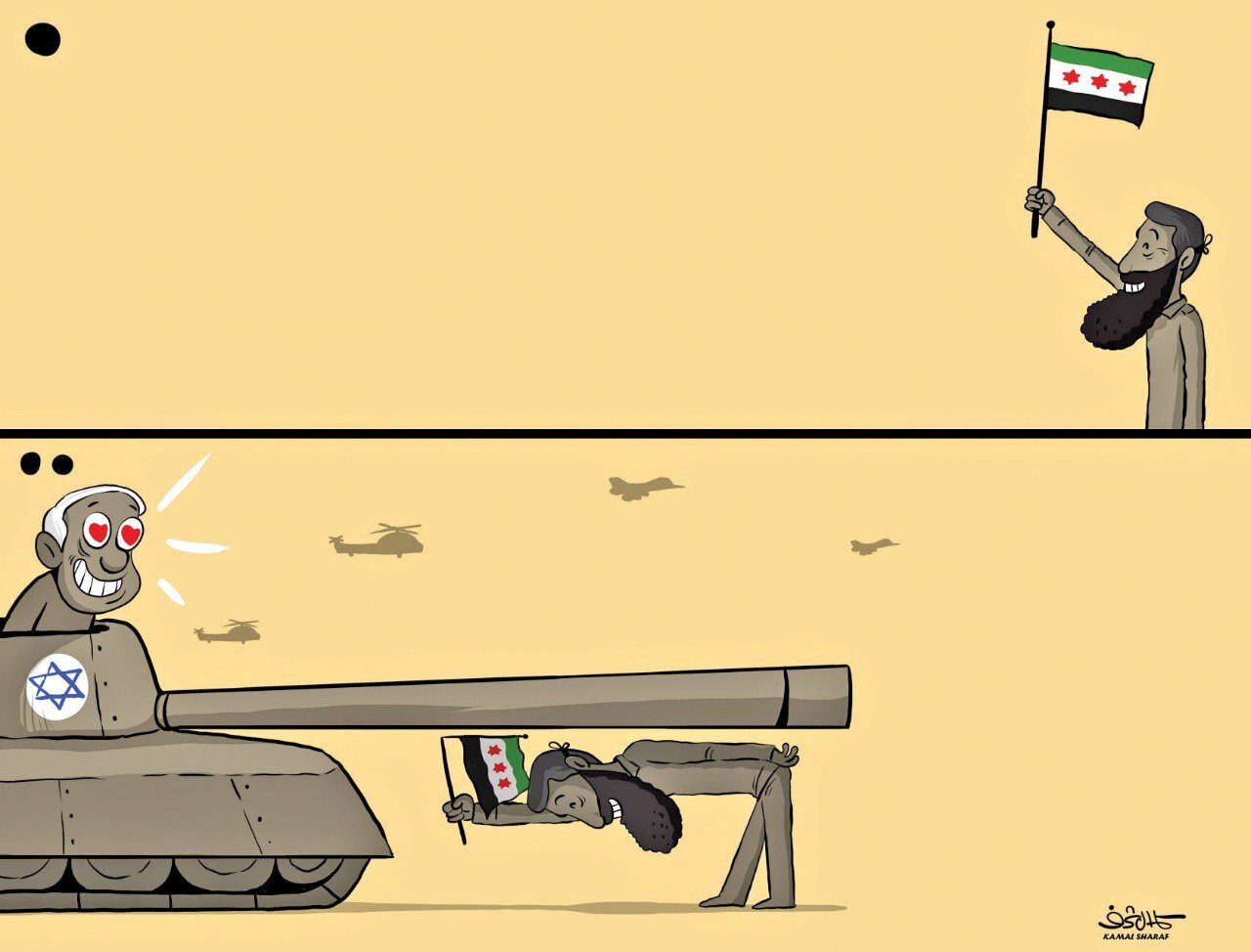Jolani's gamble: Surrendering fragmented Syria to US and Israel

TEHRAN - Syrian President Ahmed al-Sharaa (also known as Abu Mohammad al-Julani) has embarked on a controversial diplomatic campaign to secure U.S. sanctions relief, proposing a Trump Tower in Damascus and détente with Israel.
After nearly 14 years of civil war, this strategy shows a desperate attempt to stabilize Syria's collapsing economy and shattered society. However, Sharaa's actions reveal his leadership's weakness and represent a humiliating capitulation, especially his willingness to engage with Israel and court U.S. President Donald Trump in the face of ongoing Israeli airstrikes.
The severe economic situation in Syria, which is made worse by American sanctions that cut off Damascus from international financial systems, is the basis of Sharaa's approaches to Trump. In keeping with Trump's business-minded image, his plan for a Trump Tower in Damascus is a symbolic act that shows Syria is receptive to American influence and investment.
Jonathan Bass, a pro-Trump American activist who met with al-Sharaa in Damascus on April 30, described the campaign as a bid for a "business deal for the future of his country," which could encompass energy exploitation, cooperation against Iran, and engagement with Israel. Bass emphasized that al-Sharaa wants peace with his neighbors and sees a personal connection with Trump, noting both leaders have survived “assassination attempts”.
The idea of a lavish Trump-branded building in the war-torn Damascus, where millions of people live in poverty and basic infrastructure is in disarray, highlights the gap between Sharaa's goals and Syrians' needs.
Contentious engagement with Israel amid ongoing airstrikes
Sharaa's efforts to defuse the tension with Israel are still very contentious, particularly in light of Israel's ongoing airstrikes inside Syria, including near the presidential palace. These attacks expose the weakness of Sharaa's position, even though Israel presents them as steps to defend the Druze community and combat extremist threats. Sharaa acknowledged indirect de-escalation talks with Israel mediated through the United Arab Emirates.
Bass claimed that Sharaa facilitated conversations that might have led to face-to-face discussions. However, Israel's ongoing airstrikes imply that these diplomatic attempts were unsuccessful. By holding talks while being bombarded, Sharaa runs the risk of coming across as weak, which would allow Israel to set the terms and show how vulnerable Syria is to outside pressure.
Crucially, by putting external approval ahead of internal unity, Sharaa's policies have degraded Syria.
His legitimacy is complicated by his history as an al-Qaeda-affiliated U.S.-designated terrorist, and his shift to Western and Israeli engagement alienates some Syrians, especially those who have penalized, pillaged, and occupied parts of their land and continue to attack their country. Sharaa's credibility has been further damaged by the U.S.'s assessment that Damascus has not gone far enough in meeting sanctions relief requirements, such as expelling foreign fighters and destroying chemical weapons.
Skepticism of Sharaa's intentions is demonstrated by Washington's emphasis on counterterrorism, which is demonstrated by the participation of a top counterterrorism official in recent discussions with Syrian Foreign Minister Asaad al-Shibani. Therefore, Sharaa is forced to make a series of compromises that reduce Syria's negotiating leverage.
Security challenges and risks of fragmentation
Furthermore, the context of Sharaa's overtures is Israeli incursions and sectarian violence, neither of which he has adequately addressed. Israel's unilateral strikes and the Druze's opposition to disarmament demands in Jaramana and Sweida demonstrate their incapacity to protect or unite Syria's diverse communities.
Sharaa risks further fragmentation by entrusting Syria's security to a U.S. administration that lacks a cohesive Syria policy by requesting Trump's intervention to "sort this relationship out" with Israel.
Sharaa's suggestions to Israel and Trump represent a practical but demeaning survival tactic. Despite being intended to provide economic relief, the Trump Tower pitch and détente initiatives convey desperation and encourage foreign domination. In the face of Israeli airstrikes and internal turmoil, Sharaa's policies actively undermine Syria's sovereignty in addition to failing to restore its dignity.
